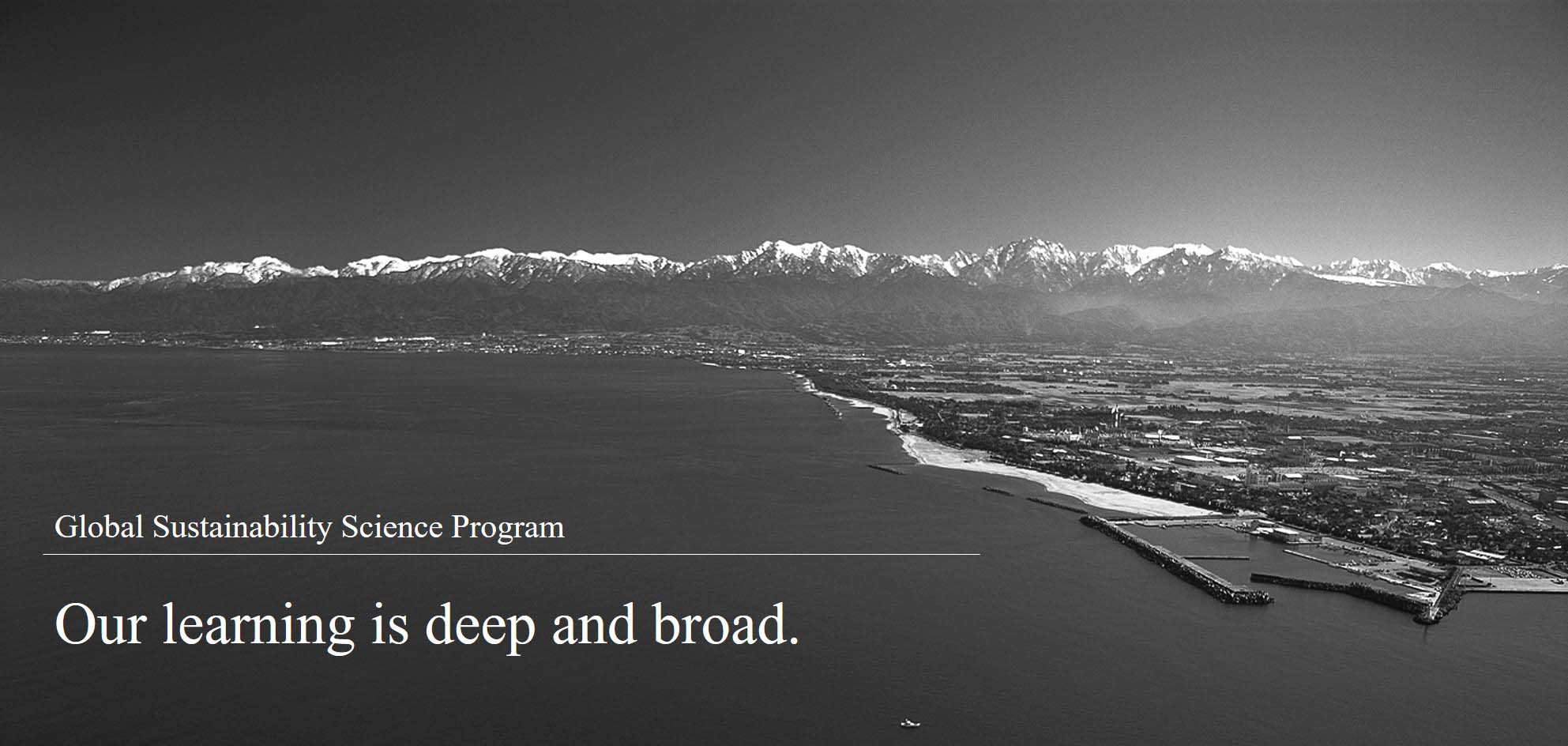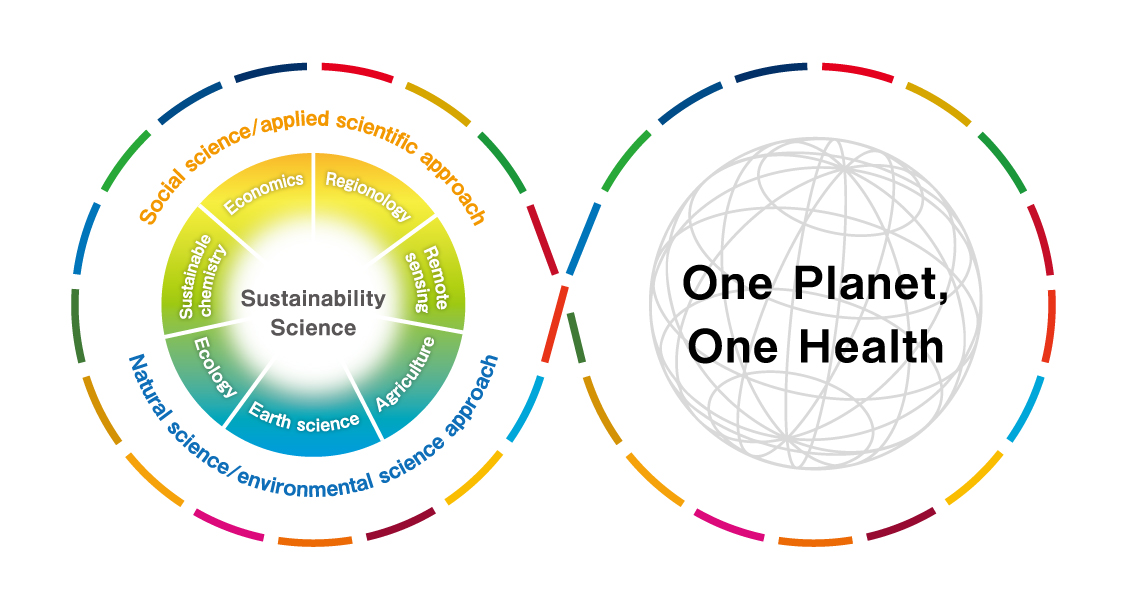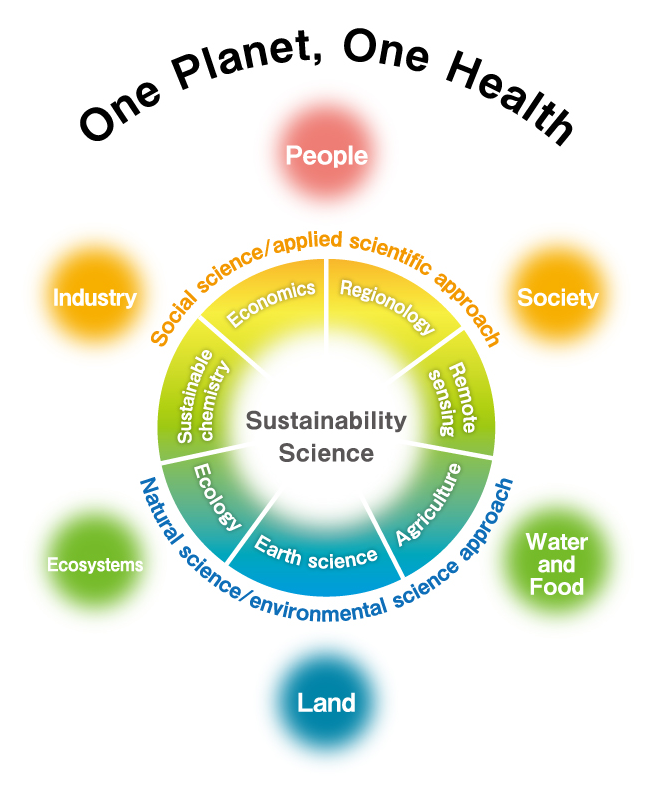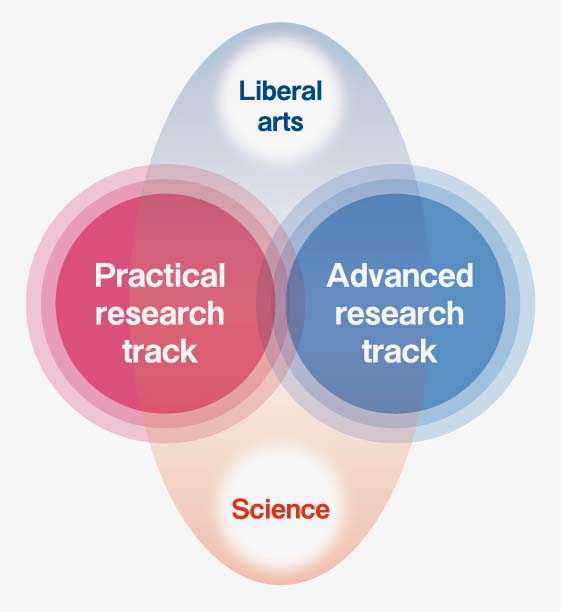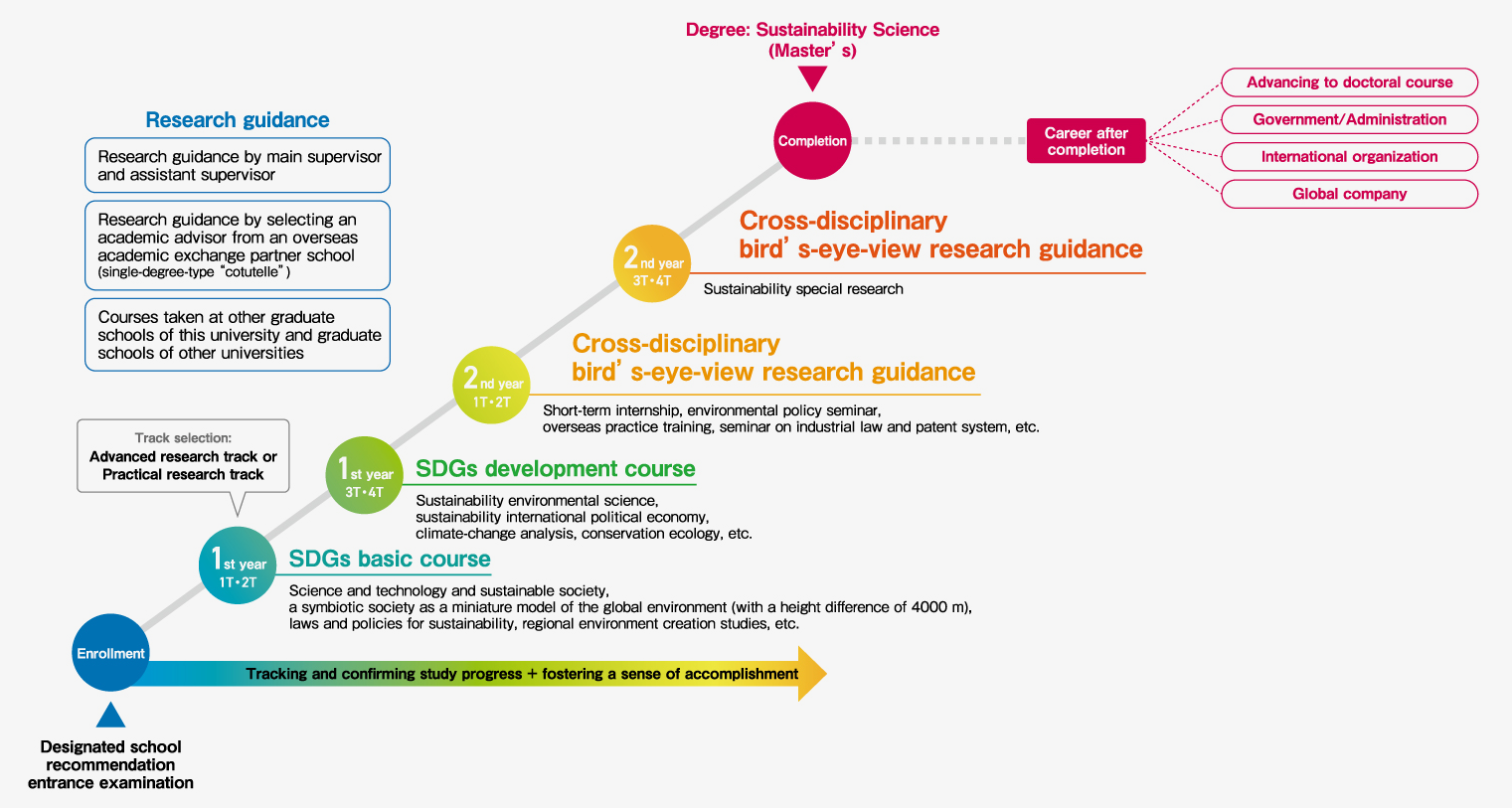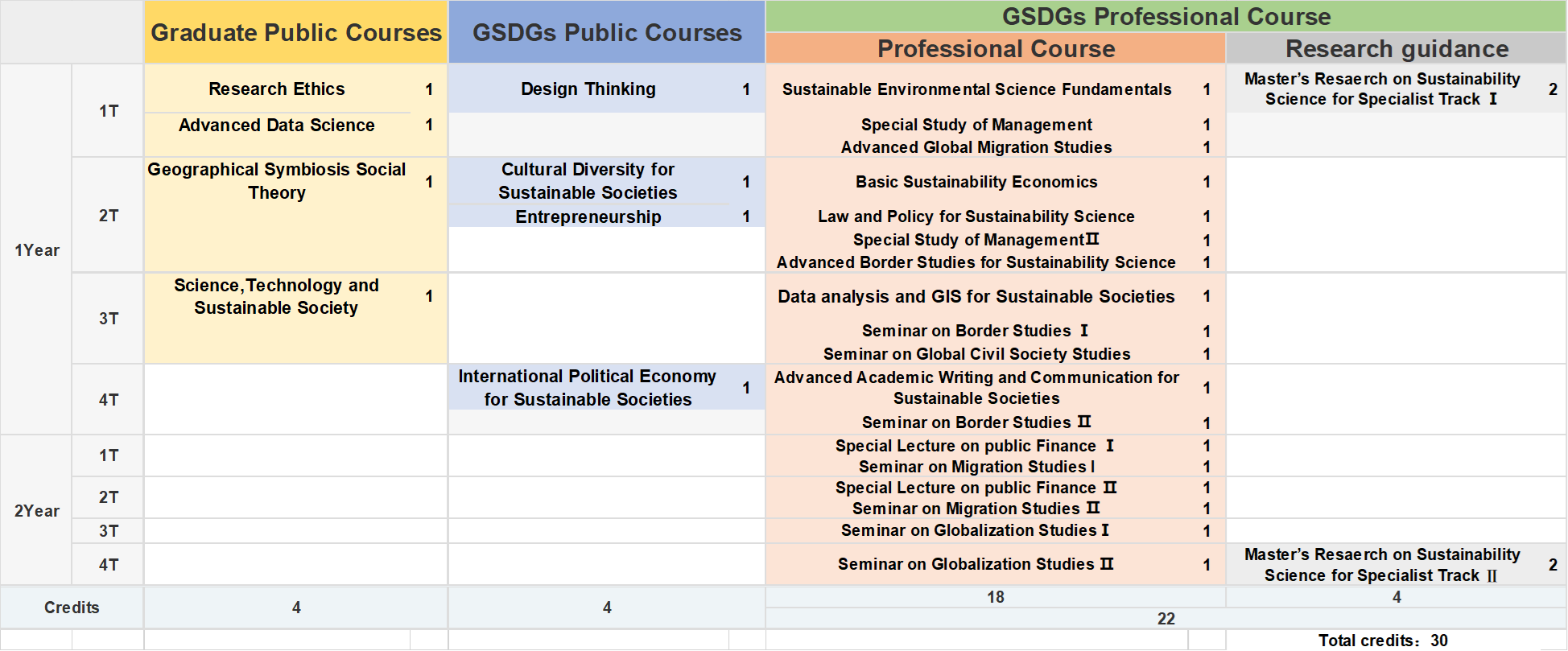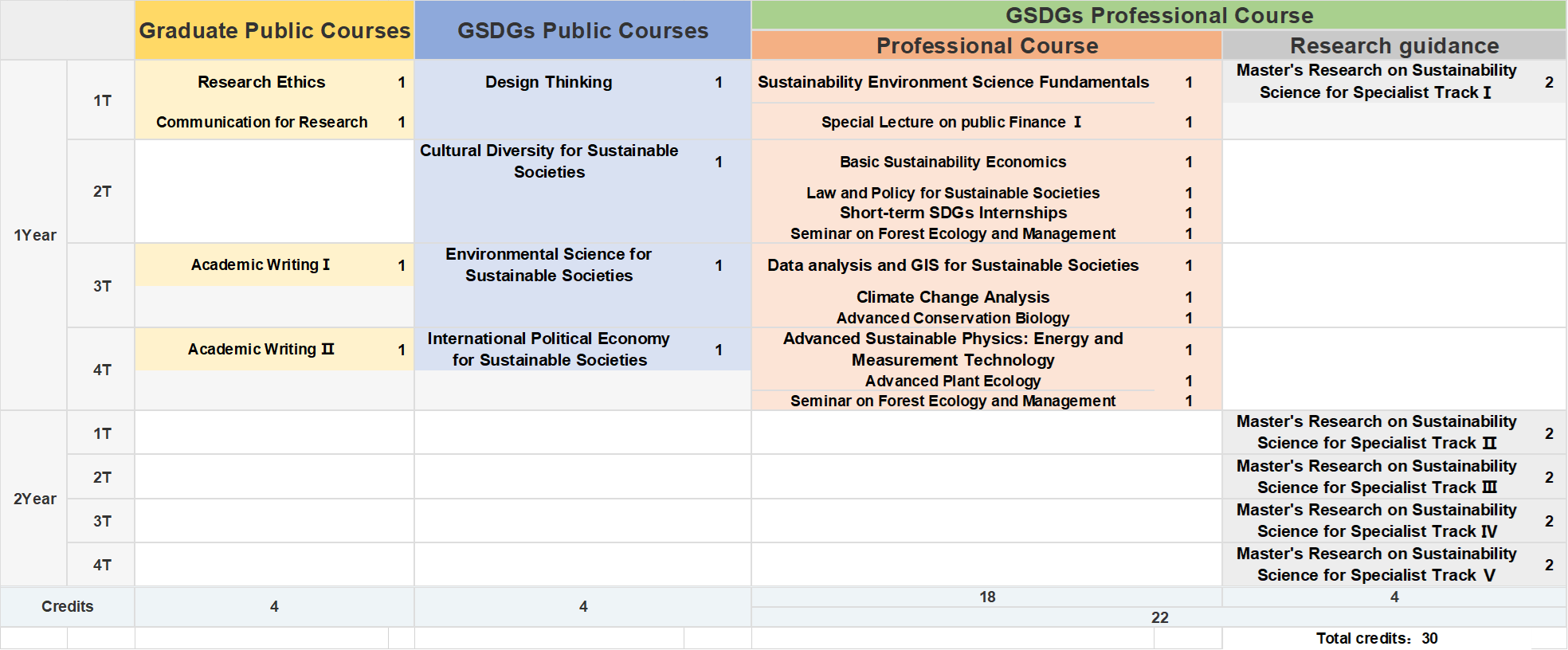FEATURE
Features of the Graduate School of Sustainability Studies
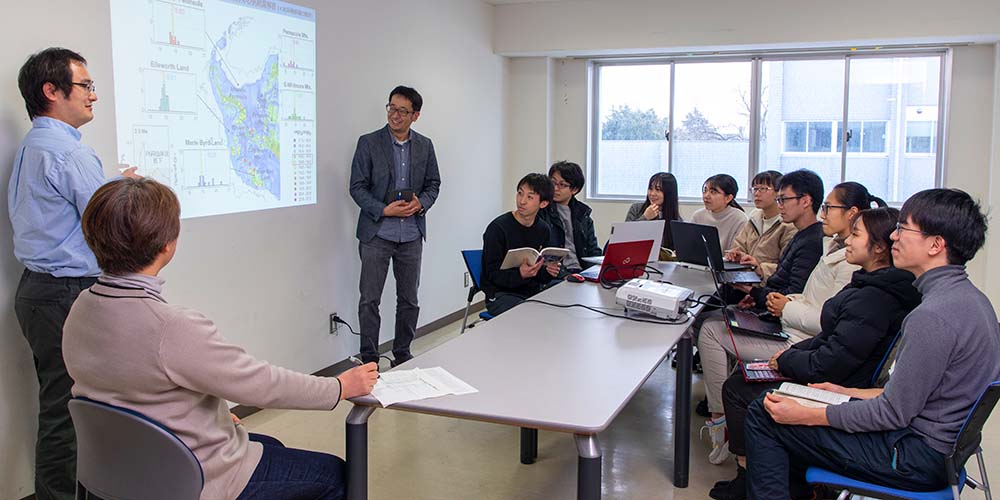
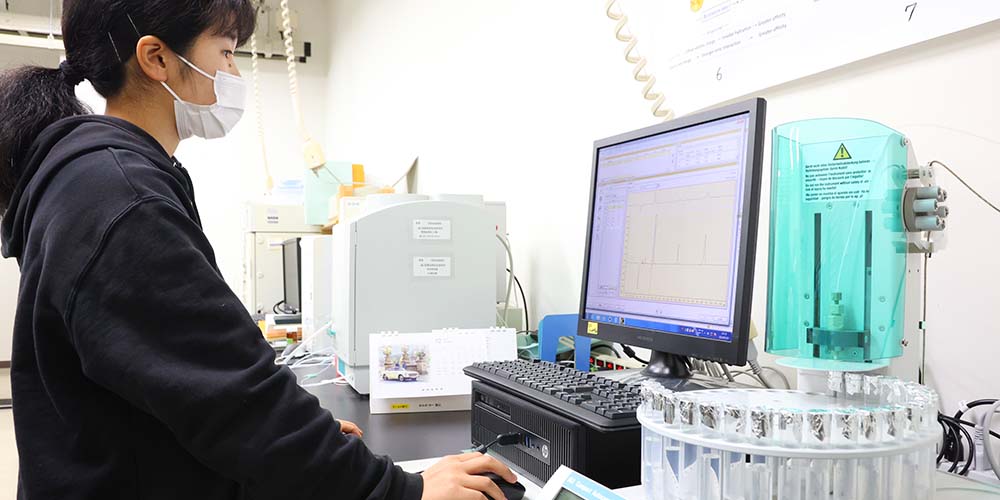
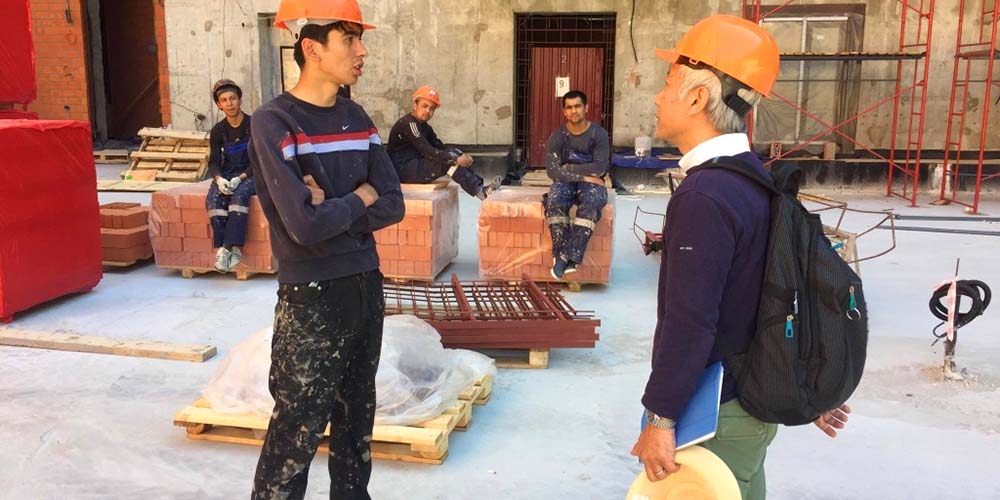
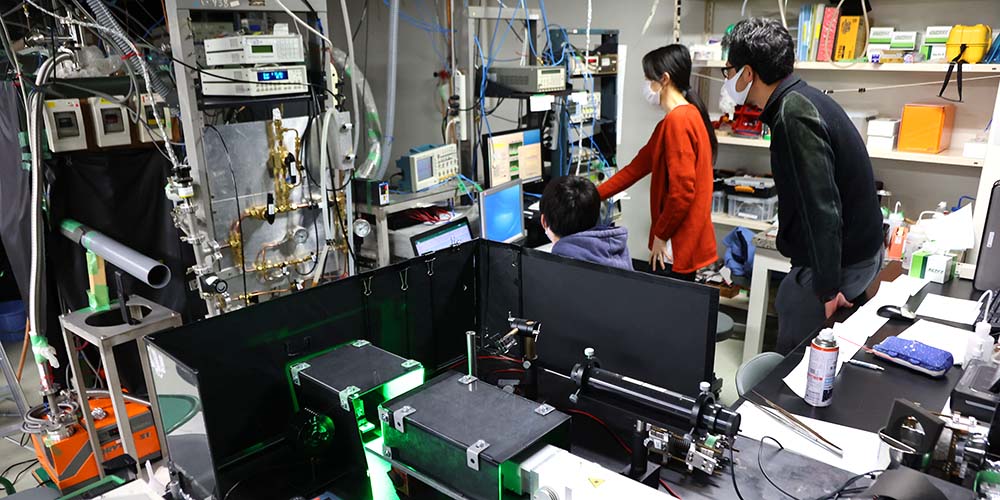
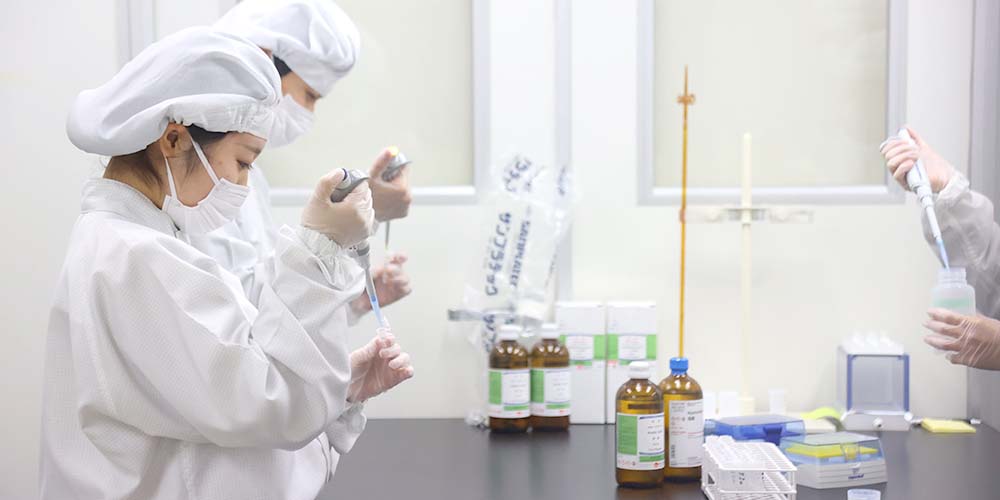
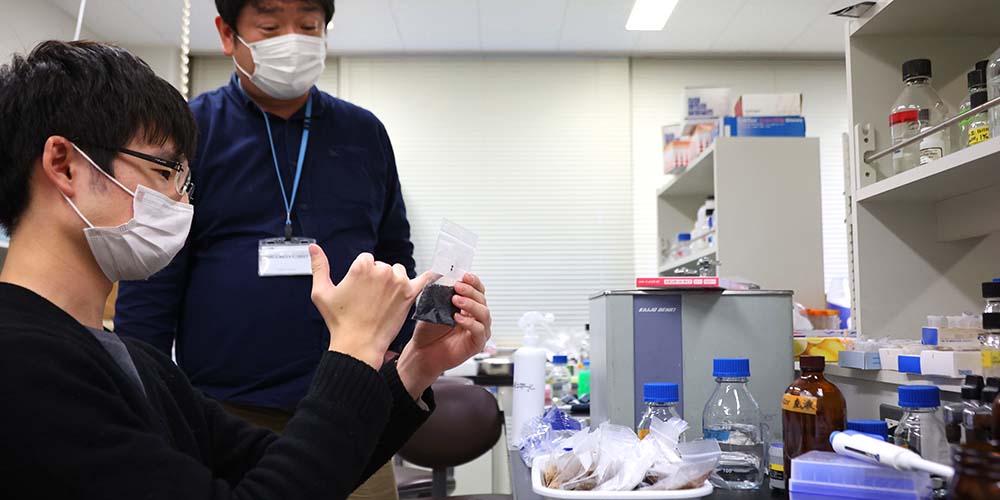
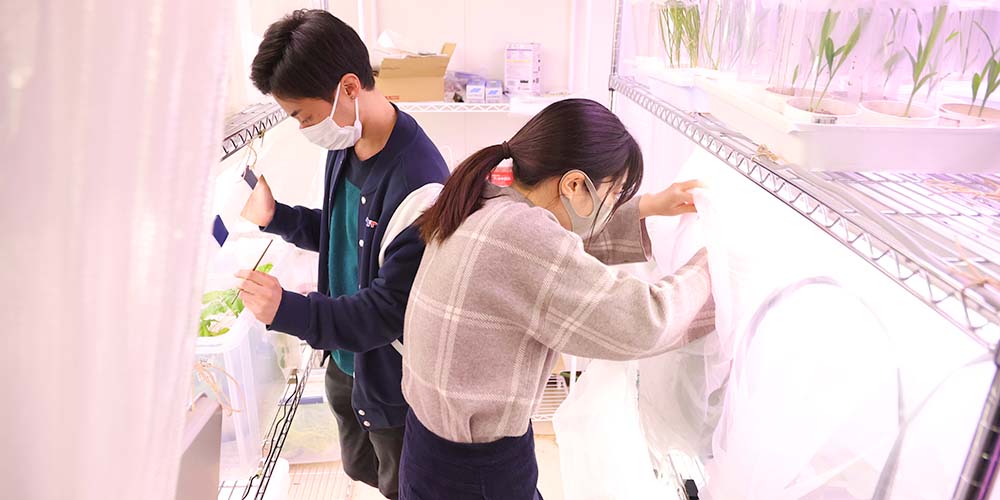
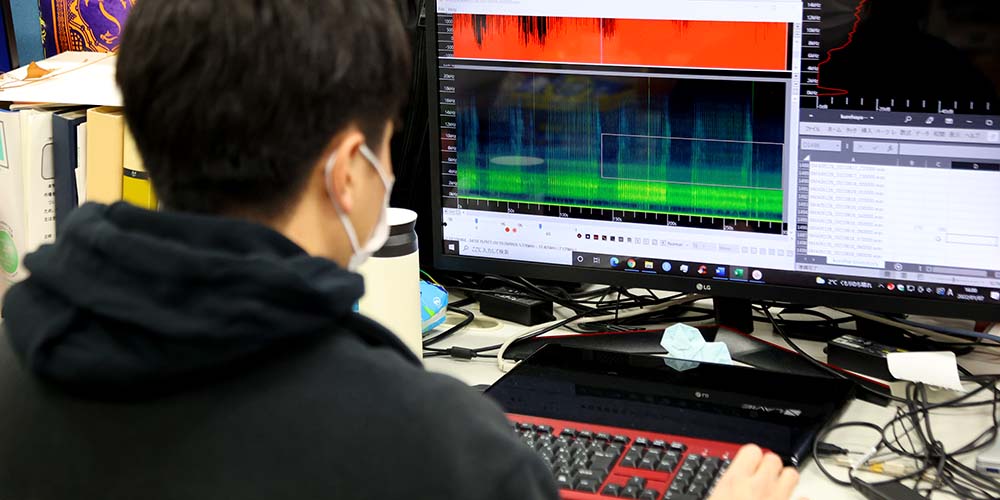
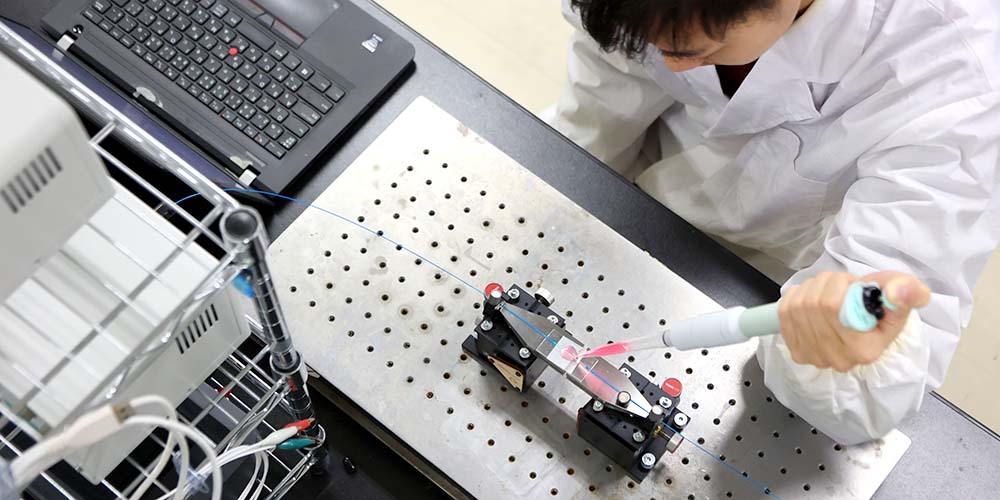
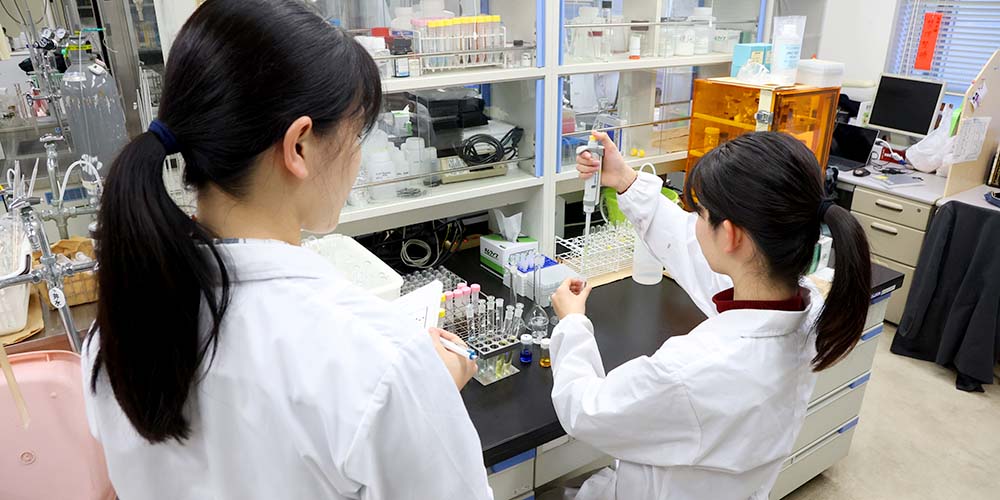
Aiming to realize a sustainable society
Open up your interest in learning and go beyond boundaries.
To realize a sustainable society, we must take a multifaceted view of people’s behavior, identify issues, and take measures across multiple fields. Considering those necessities, we need to examine not only the field of natural science but also economic activities, equality of people and nations, resource cycles, and all other perspectives. Accordingly, by teaching and researching specialized knowledge in a cross-disciplinary manner through omnibus courses taught by faculty members specializing in different research fields, we will thus transcend the boundaries of humanities and sciences to foster human resources who will contribute to realizing a sustainable society.
FIELD
Research Fields and Faculty Members
Members
Economic and Social Science Field
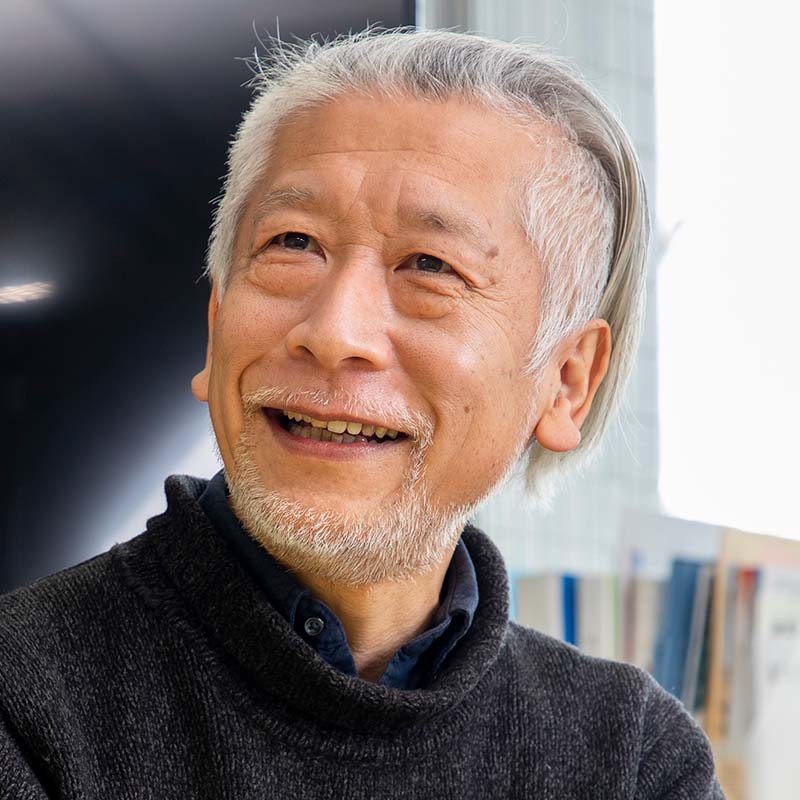
Area Studies
Prof.Norio HORIE
Issues related to the SDGs in migration and border studies will be addressed. Research guidance will be provided on gathering and understanding the necessary academic information and on research and research methods.
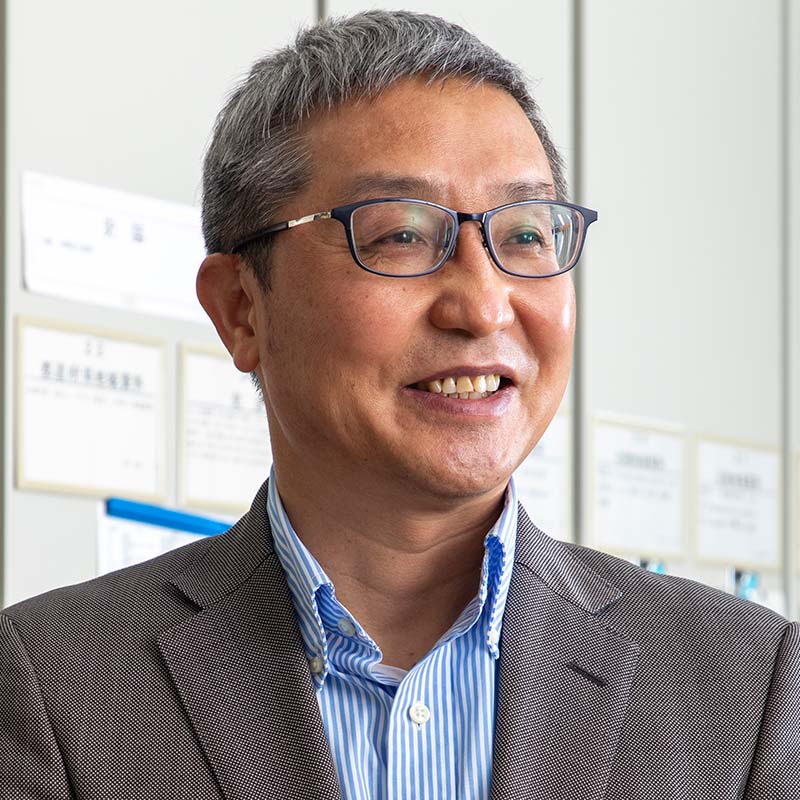
Organization and Human Resource Management
Prof.Jun MA
Issues related to the SDGs in the management of organizations and human resources and human resource development policies will be topics for research guidance on gathering and understanding the necessary academic literature and study methods.
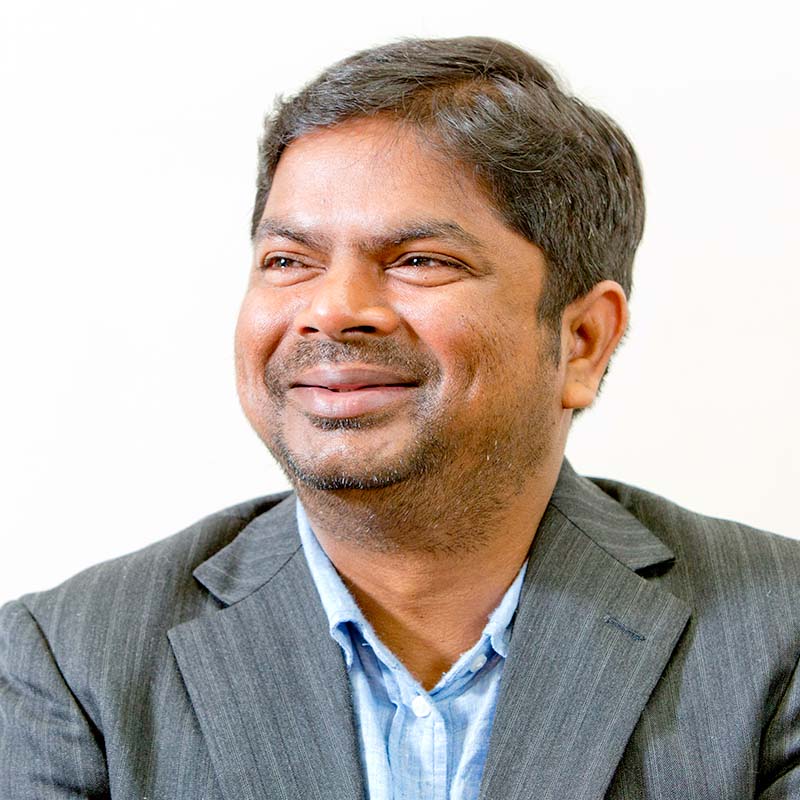
Sustainability Science
Prof.Geetha MOHAN
Research interests focused on addressing the problems of sustainability science topics associated with integrated water resources management, global food security, and interlinkage evaluation across SDGs.
Further exploring to develop innovative climate adaptation solutions and co-benefits engaging field research studies and multidisciplinary teams to build resilient livelihoods and sustainable societies in Asia and Africa.
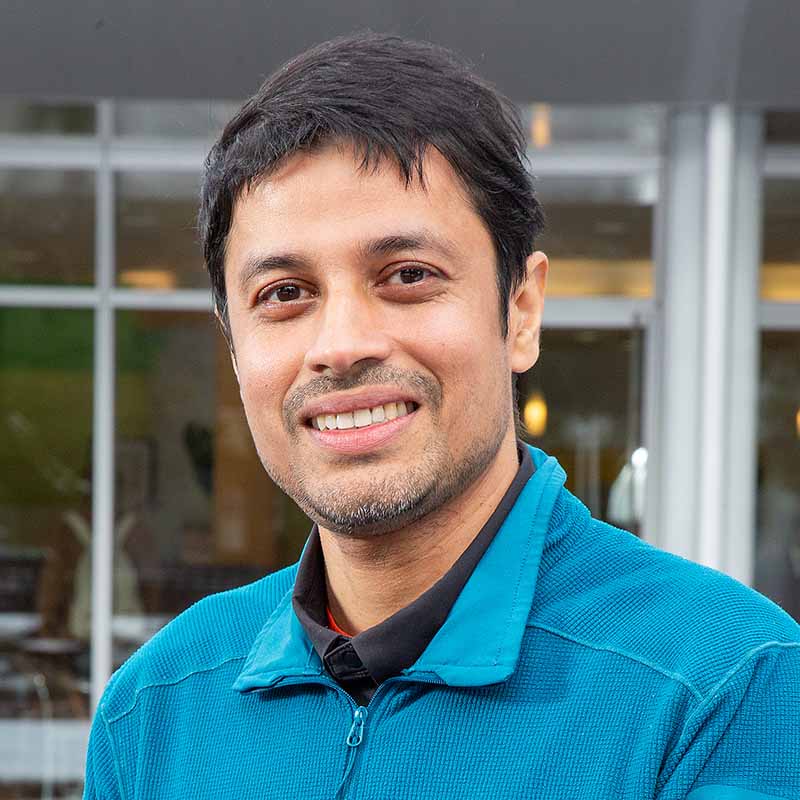
Sustainability Science
Associate Prof.
Shamik CHAKRABORTY
Rooted in the discipline of sustainability studies as a holistic and transformative science, research guidance will be provided on issues related to the SDGs and provide research guidance on sustainable use and management of natural resources, and valuation of ecosystem services from the perspective of social ecological systems.
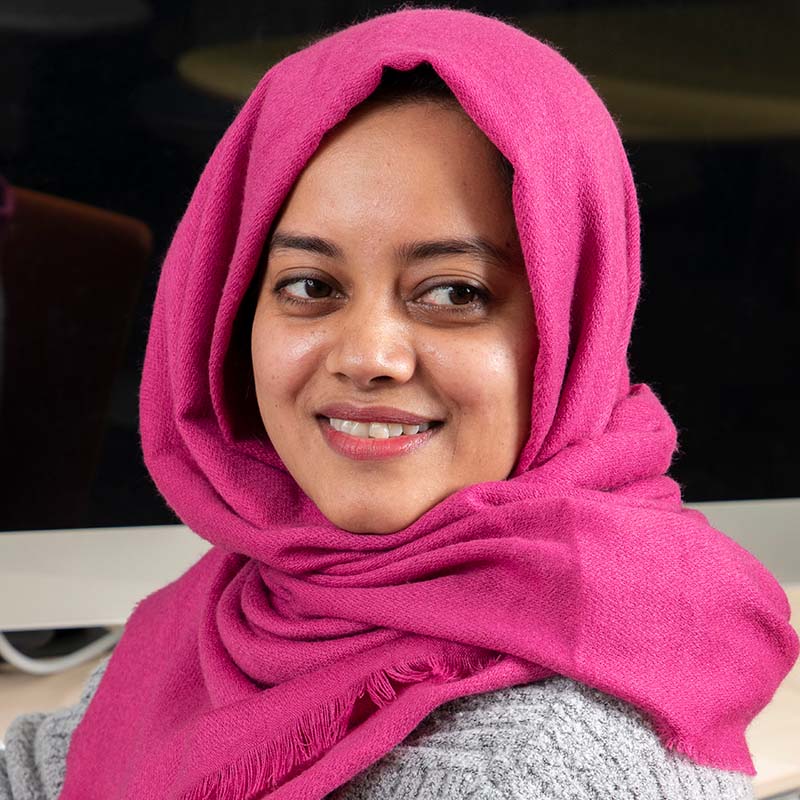
Area Studies
Assistant Prof.Shishir SHARMIN
The issues addressed are related to the SDGs in land use and environmental conservation. The project will address the conservation of ecosystems and the natural environment using state-of-the-art technologies such as geographic information systems (GIS) and remote sensing. In addition, the seminar will provide directed study on organizing and understanding basic academic knowledge and research methods.
Natural Environment Science Field
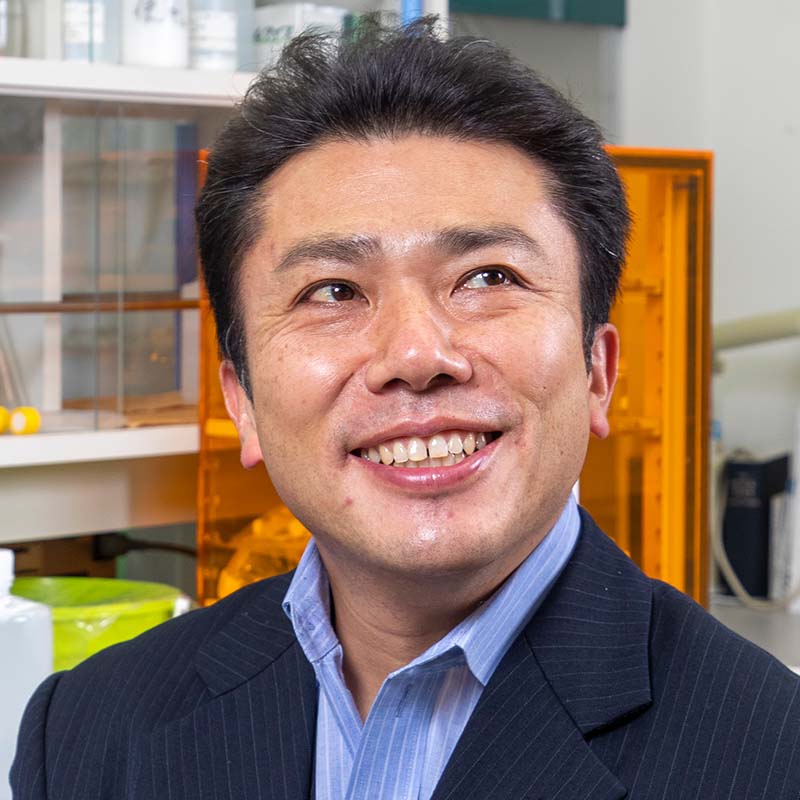
Analytical Chemistry, Environmental Chemistry, Green Chemistry
Prof.Hideki KURAMITZ
Analytical Chemistry, Environmental Chemistry, Green Chemistry Topics related to the SDGs in environmental chemistry and analytical chemistry research will be addressed. Research and direction will be provided in our laboratory on developing new sensors and analytical methods and their application to environmental measurements.
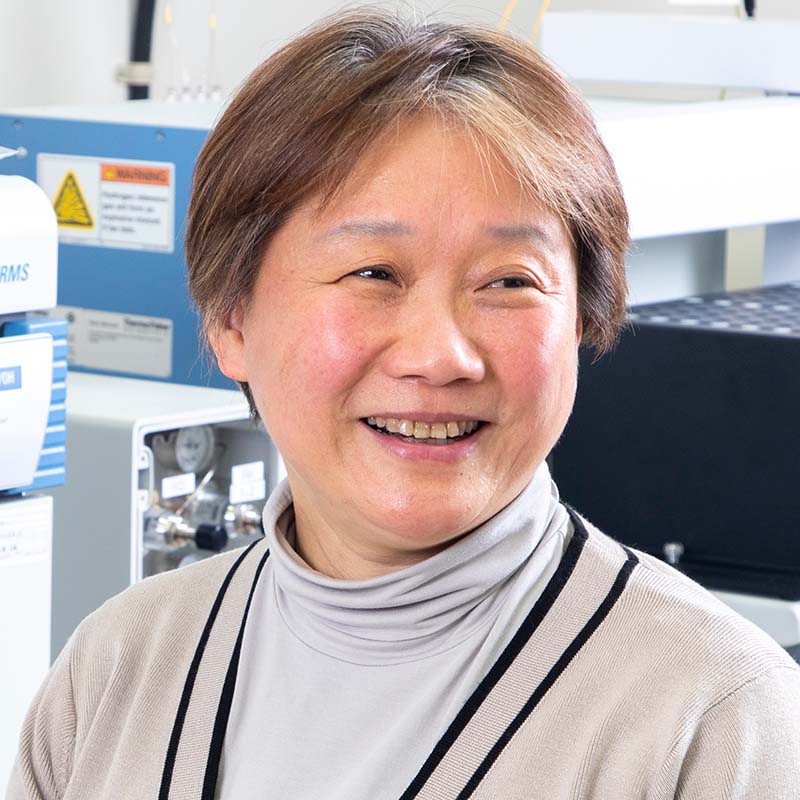
Chemical Oceanography and Environmental Geochemistry
Prof.Jing ZHANG
We analyze trace elements and isotopes in oceanic and terrestrial waters and the atmosphere as “fingerprints” in order to elucidate the material cycles of the global environment and their mechanisms. Our research interests include coastal groundwater upwelling systems, formation mechanisms of deep-sea cold upwelling, changes in the Japan Sea’s deep circulation, and the effects of anthropogenic substances on the marginal seas and North Pacific ecosystems.
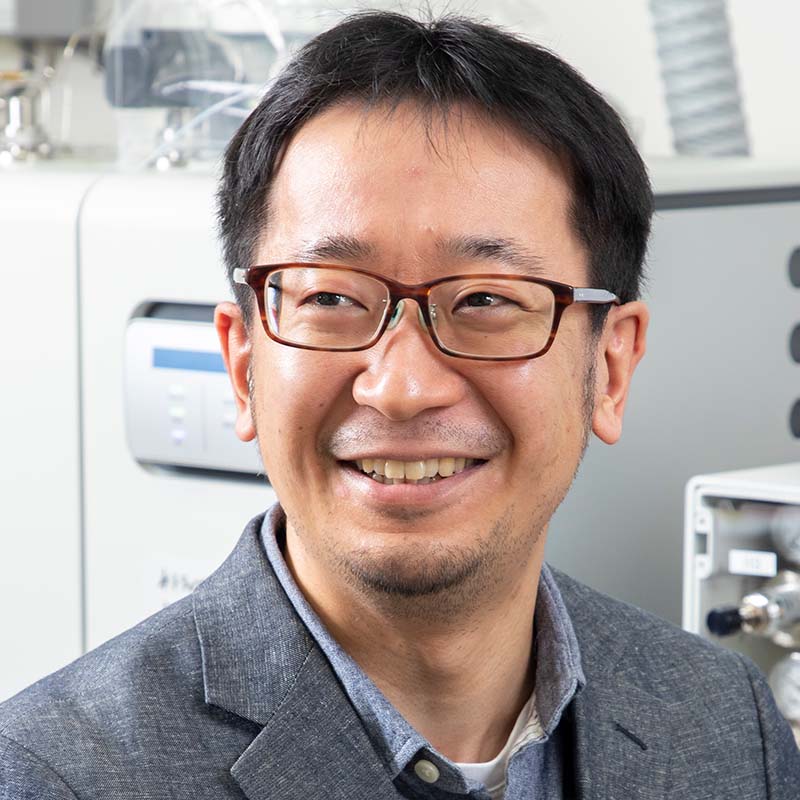
Geochemistry and Paleoceanography
Prof.Keiji HORIKAWA
Our laboratory provides directed study and skills development to analyze and evaluate climate and environmental conditions, transitions, and change factors. This work is done through trace element analysis and isotope ratio analysis based on seafloor sediments, seawater, and terrestrial water samples.
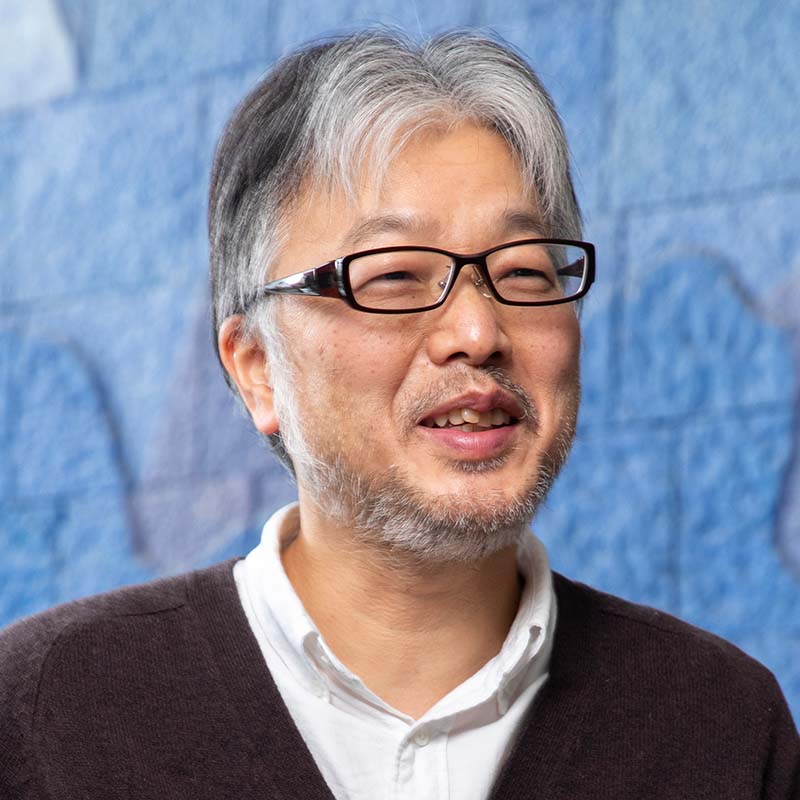
Plant Ecology
Prof.Naoya WADA
Issues related to the SDGs in ecology and conservation science are addressed. Our seminars provide research guidance on gathering and understanding the necessary academic information and research methods.
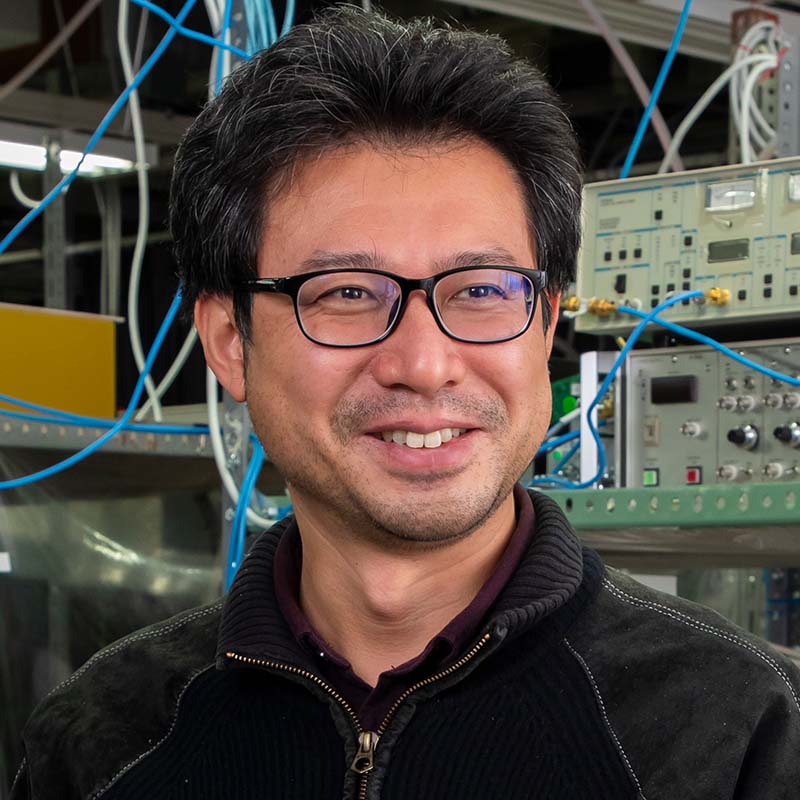
Environmental Physics
Associate Prof.Katsunari ENOMOTO
Our laboratory uses laser spectroscopy to investigate the properties and elementary processes of air pollutants and heavy metal-containing molecules and directs research on developing environmental monitoring techniques.
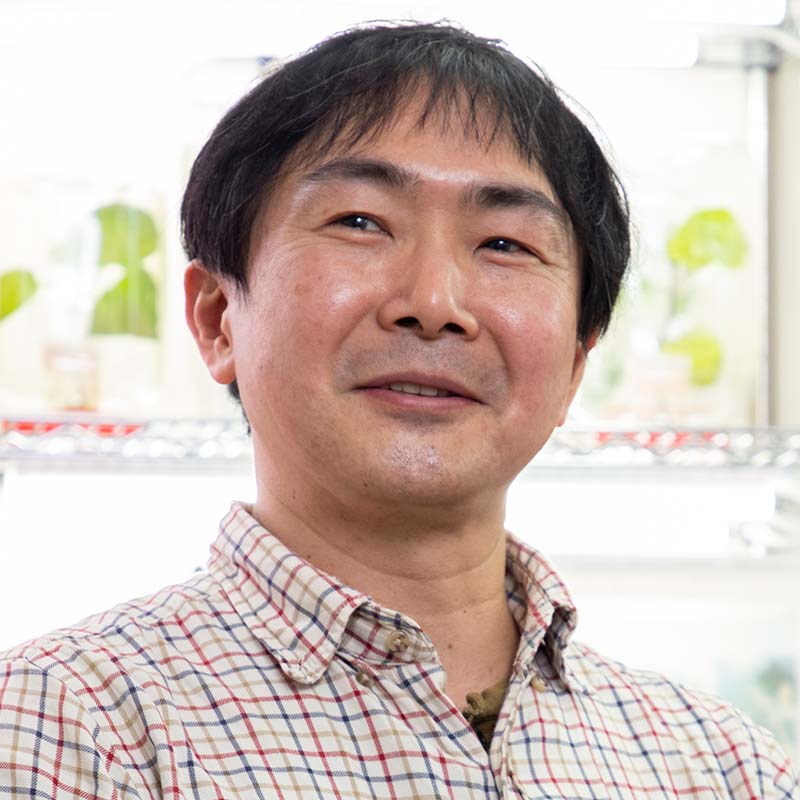
Symbiosis Biology and Insect Science
Associate Prof.Tsutomu TSUCHIDA
Our laboratory provides direction on issues that contribute to integrated pest management and utilization of biological genetic resources, targeting interactions and symbiotic phenomena between organisms.
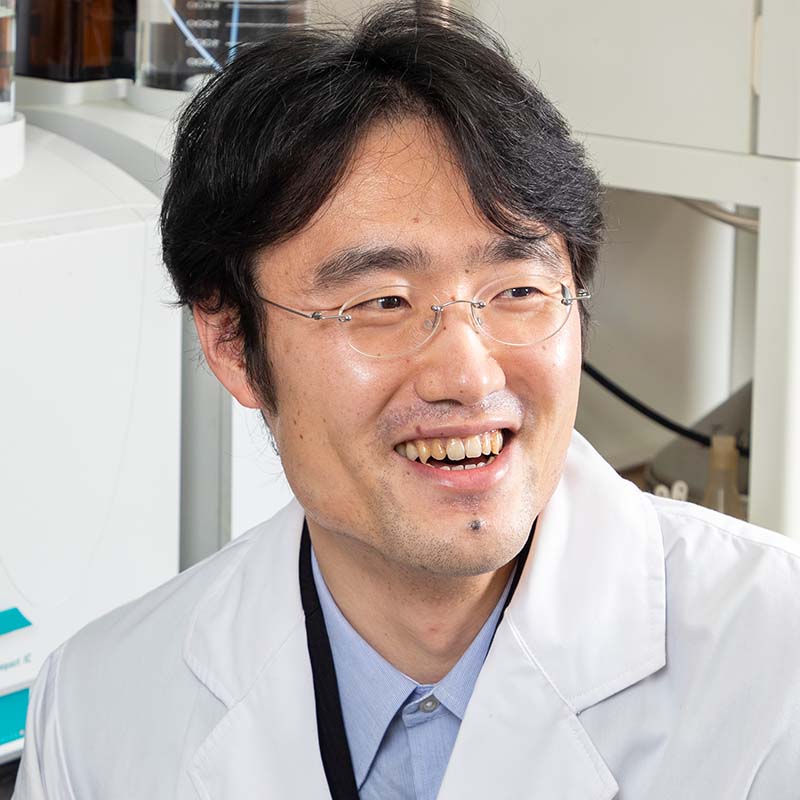
Soil Environmental Studies and Environmental Chemistry
LecturerKazuto SAZAWA
Our laboratory provides instruction in the chemical analysis of organic substances in soil and aquatic environments, their interactions with environmental contaminants, and the ecotoxicological changes that result from these interactions.
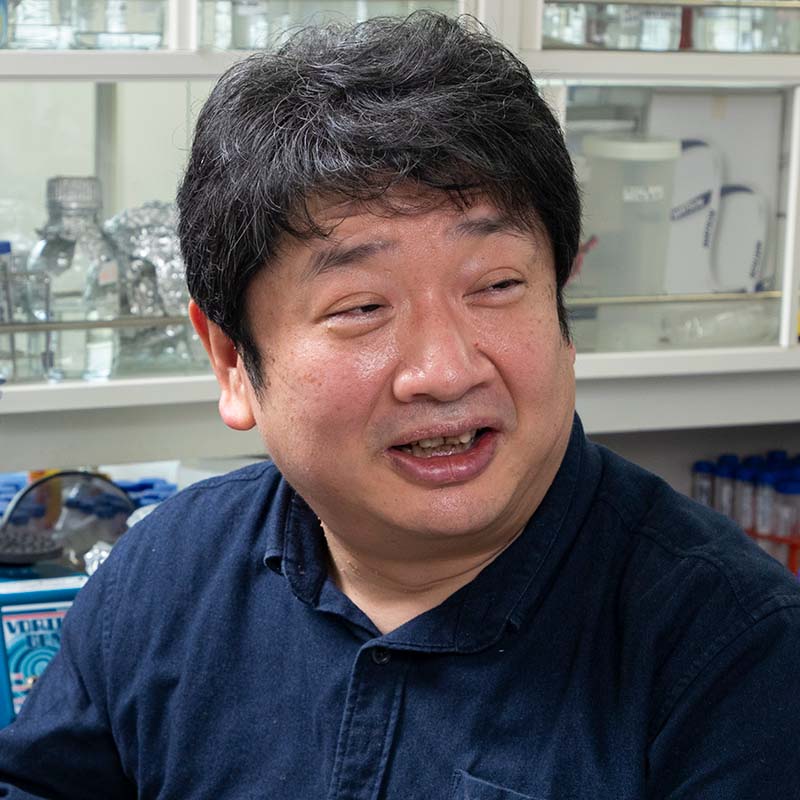
Molecular Genetics and Genetic Breeding Science
LecturerMasayuki YAMAMOTO
Our laboratory addresses SDG-related issues in plant breeding and production, providing the necessary scientific information, knowledge, and direction in research methods.
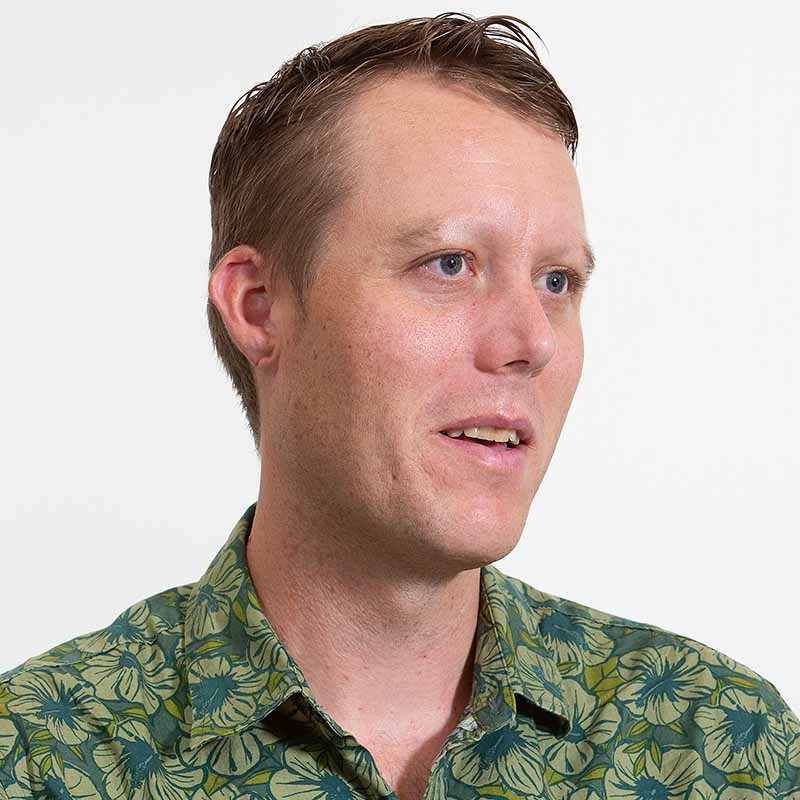
Aquatic Ecology
Assistant Prof.Peterson Miles ISAO
Our laboratory focuses on conservation ecology in aquatic ecosystems, specifically examining the ecosystem impacts and establishment mechanisms of harmful introduced species.
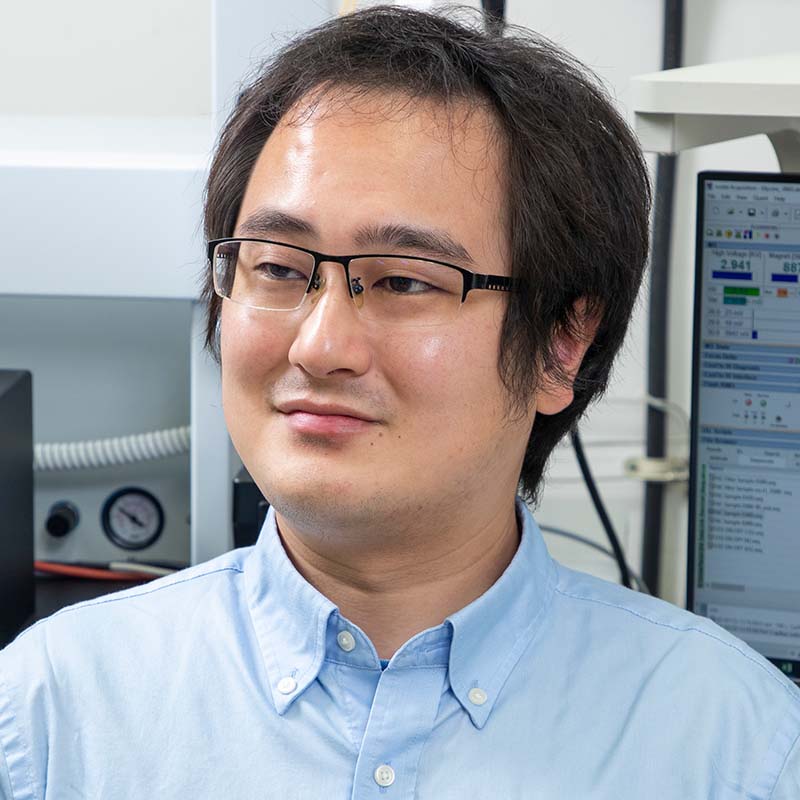
Geochemistry
Assistant Prof.Takanori KAGOSHIMA
Our laboratory guides research on analyzing the mechanisms of volcanic and seismic activity and material circulation by measuring the isotopic composition of volatile elements in gas and water samples emitted from volcanoes and faults.
International Field
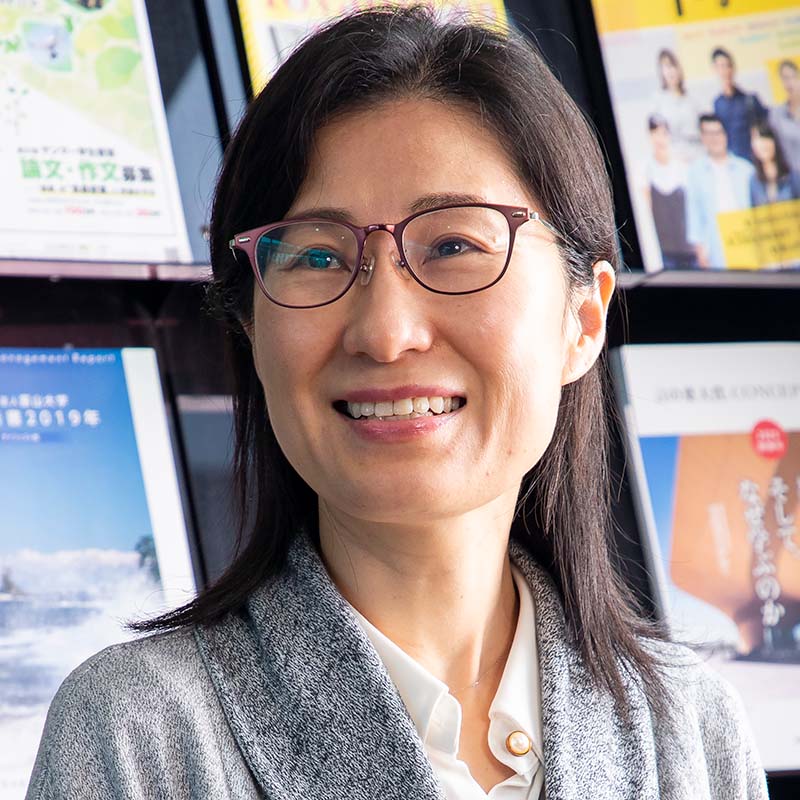
International Exchange, Study Abroad Support, Physical Sciences
LecturerEun-Kyung PARK
Seminars provide the guidance necessary for scientific communication skills and the cross-cultural understanding required for those who aspire to achieve the global SDGs.
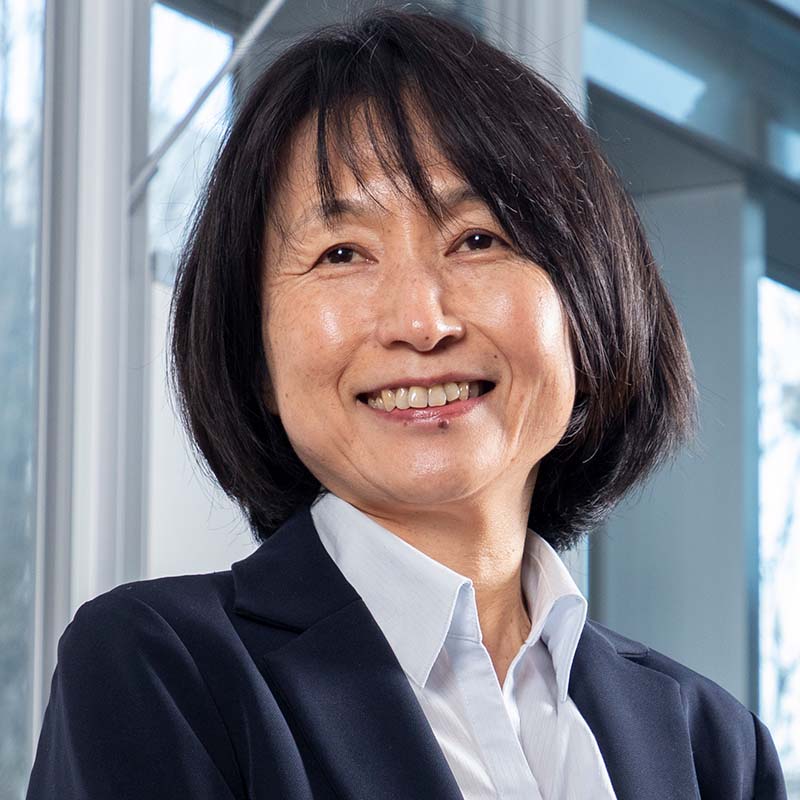
International Exchange, Study Abroad Support, Life Science
Associate Prof.Tomoko YOSHIKAWA
International Exchange, Study Abroad Support, Life Science Seminars provide the guidance necessary to learn and conduct research across national and cultural boundaries.
CAREER
Image of human resources to be trained
Human resources who can create new value based on multifaceted perspectives and cross-disciplinary academic knowledge

The Department of Science and Engineering and the Department of Social Sciences teach and research interdisciplinary theories and interdisciplinary applications and nurture human resources who can contribute to building a sustainable society. In particular, the Departments teach students the profundities of these fields in a manner that cultivates the deep academic knowledge, outstanding abilities, and ethical standards to take up positions that require a high level of expertise.
Educational objectives, educational goals,
and three policies
We aim to develop human resources who (i) can create new knowledge about the problems that must be solved before we can build a sustainable society, (ii) have the ability to create new value, (iii) have the English language skills needed to be active globally, and (iv) can provide solutions to the issues facing society.
Educational objectives
Our educational objective is to develop human resources who can contribute to realizing a “sustainable society” by reading sustainability studies from an international perspective and acquiring problem-solving skills—primarily for “global-scale” issues—through a cross-disciplinary approach that integrates natural and social sciences.
Educational Goals
To nurture highly-skilled professionals who can contribute to realizing a sustainable society from both local and global perspectives, the program aims to cultivate four abilities: (i) fundamental ability, (ii) specialized knowledge, (iii) a sense of ethics, and (iv) creativity.
Admissions policy
To foster human resources who are motivated to contribute to realizing a sustainable society as highly skilled professionals in the future, we seek students who meet the following four requirements:
- Applicants must have basic academic skills equivalent to a university degree and a desire to acquire broad knowledge of academic fields related to sustainable society.
- Applicants must have (i) basic academic skills in the field of study in which they specialize and (ii) the desire to contribute as an advanced professional by acquiring a wealth of specialized knowledge and advanced research skills.
- Applicants must act proactively with a sense of responsibility and ethics as a member of society and have an awareness of the need to contribute to building a sustainable society.
- Applicants must be willing to tackle various issues facing society and have a broad perspective and flexible thinking skills needed to build a sustainable society.
Diploma Policy
Based on the above-described educational objectives, a Master’s Degree (Sustainability Studies) will be awarded to those who have completed the prescribed course of study and acquired the following academic abilities.
- Fundamental ability
Students will acquire the academic knowledge necessary to build a sustainable society, the English-language skills and logical-thinking skills necessary to be active on the global stage, and a bird’s-eye view of various issues from a multifaceted viewpoint. - Specialized knowledge
Students will acquire the specialized knowledge, research ability, and practical ability necessary for professions that require a high degree of specialization in the academic fields necessary for building a sustainable society and solving problems facing that society. - Sense of ethics
Students will acquire the ethical standards and normative consciousness necessary for working as a highly specialized professional and/or researcher. - Creativity
Students will acquire the ability to (i) create new knowledge about problems that need to be solved before building a sustainable society and further value from that knowledge and (ii) devise new solutions to the various issues facing society.
Curriculum policy
A systematic educational program is organized to enable students to acquire the four academic abilities listed in the Diploma Policy. The educational program is designed to enable students to learn independently and actively throughout their two years of study. The curriculum of the program consists of three categories: (i) foundation courses for developing basic skills in sustainability studies; (ii) practical courses for acquiring specialized knowledge in the sciences and social sciences related to sustainability studies; and (iii) special research courses for pursuing problem-solving research in the field of sustainability studies.
In addition to required lectures, exercises, special research, and special seminars, elective courses are offered in a variety of ways and formats, including lectures, exercises, experiments, and practical training.
Evaluation is based on objective grading criteria regarding the degree of achievement of the learning outcomes for each ability. In addition to the traditional “advanced research track,” which emphasizes special research, the “practical research track,” which emphasizes lectures and exercises in a wider range of fields, is established to meet the needs for relearning in an increasingly diverse society. The choice of track is made in the first term of the first year.
CURRICULUM
Curriculum and course model
Overview of curriculum
The program is designed primarily for students from the science and engineering and economics faculties of the University, but it also accepts students from the science, engineering, and social-science faculties of other universities. After completion of the program, students are expected to work in international organizations such as the United Nations and international NGOs, government offices, educational institutions, multinational manufacturing companies, and the financial industry.
In the first year, which focuses on the foundation and development of SDGs, students will take common graduate-school courses, common inter-university courses, and specialized inter-university courses. In the second year, which focuses on cross-disciplinary, bird’s-eye-view research guidance, students will mainly focus on special research courses.
The curriculum includes an “advanced research track” that emphasizes traditional special research and a “practical research track” that emphasizes lectures and exercises in a broader range of fields of study. A Master’s Degree in Sustainability Studies will be awarded to those who have completed the prescribed course of study and achieved the academic abilities as stated in the Diploma Policy.
- Advanced Research Track:Students will conduct more advanced research on their research topics and deepen their academic knowledge. They are expected to advance to doctoral programs or work as researchers at research institutes or universities.
- Practical Research Track:Students will take more courses to enhance their own abilities and expand their potential for applying those skills. Upon completing the course, they are expected to work in international organizations, governments, and companies.
履修科目
グローバルSDGsプログラム (GSGDs)
大学院共通科目
〇 GSGDs必修科目
* GSGDs選択科目(2単位以上)
- 地域共生社会特論*Geographical Symbiosis Social Theory
- 研究者としてのコミュニケーション:基礎と応用*Communication for Researchers
- アート・デザイン思考*Art and Design Thinking
- 英語論文作成Ⅰ*Academic writing Ⅰ
- 英語論文作成Ⅱ*Academic writing Ⅱ
- データサイエンス特論*Advanced Data Science
- 大学院生のためのキャリア形成*Career Development for Graduate Students
- 知的財産法*Law of Intellectual Property
学環共通科目
〇 GSGDs必修科目
* GSGDs選択科目(3単位以上)
- 文化の多様性と持続可能社会*Cultural Diversity for Sustainable Societies
- サステイナビリティ環境科学*Environmental Science for Sustainable Societies
- サステイナビリティ国際政治経済学*International Political Economy for Sustainable Societies
- デザイン思考*Design Thinking
- アントレプレナーシップ論*Entrepreneurship
- インターンシップ*Internship
学環GSGDs専門科目(基盤科目・必修)
〇 GSGDs必修科目
- 〇サステイナビリティ環境理学基礎Sustainability Environmental Science Fundamentals
- 〇サステイナビリティ経済学基礎Basic Sustainability Economics
- 〇アカデミックライティング・コミュニケーション特論Advanced Academic Writing and Communication for Sustainability Science
- 〇サステイナビリティデータ解析・GIS演習Data analysis and GIS for Sustainability Science
学環GSGDs専門科目(実践科目・選択必修)
上記より1単位以上の選択履修が必須
専門科目(実践科目・選択)
- 持続可能性・政治・法律Sustainability, Governance and Law
- サステイナビリティ法政策学Law and Policy for Sustainable Societies
- 移民研究特論Advanced Global Migration Studies
- 境界研究特論Advanced Border Studies for Sustainability Science
- 経営学特論ⅠSpecial Study of Management Ⅰ
- 経営学特論ⅡSpecial Study of Management Ⅱ
- グローバリゼーション特論ⅠAdvanced Globalization Studies Ⅰ
- グローバリゼーション特論ⅡAdvanced Globalization Studies Ⅱ
- 財政学特論ⅠSpecial Lecture on Public Finance Ⅰ
- 財政学特論ⅡSpecial Lecture on Public Finance Ⅱ
- 国際私法特論Advanced Private International Law
- 環境産業特論ⅠSpecial Lecture on Environmental Industry TheoryⅠ
- 環境産業特論ⅡSpecial Lecture on Environmental Industry TheoryⅡ
- 気候変動解析学Climate Change Analysis
- 水環境計測特論ⅠAdvanced Analytical Science for Sustainable Water Environment Ⅰ
- 水環境計測特論ⅡAdvanced Analytical Science for Sustainable Water Environment Ⅱ
- 水環境計測特論ⅢAdvanced Analytical Science for Sustainable Water Environment Ⅲ
- 水環境計測特論ⅣAdvanced Analytical Science for Sustainable Water Environment Ⅳ
- 保全生物学特論Advanced Conservation Biology
- 植物生態学特論Advanced Plant Ecology
- 火山地震化学Chemistry for volcanoes and earthquakes
- 化学海洋学Chemical Oceanography
- 総合病害虫管理学Integrated Pest Management
- サステイナビリティ物理学特論:エネルギーと計測技術Advanced Sustainable Physics: Energy and Measurement Technology
- 植物生産学特論Advanced Plant Production
- 環境法ゼミナールSeminar on Environmental Law
- 国際環境法ゼミナールSeminar on International Environmental Law
- 環境政策学ゼミナールSeminar on Environmental Policy
- 産業法・特許制度ゼミナールSeminar on Industrial Law and Patent System
- 移民研究ゼミナールⅠSeminar on Migration Studies Ⅰ
- 移民研究ゼミナールⅡSeminar on Migration Studies Ⅱ
- 境界研究ゼミナールⅠSeminar on Border Studies Ⅰ
- 境界研究ゼミナールⅡSeminar on Border Studies Ⅱ
- 組織と人材のマネジメントゼミナールⅠSeminar for Management of Organization and Human resource Ⅰ
- 組織と人材のマネジメントゼミナールⅡSeminar for Management of Organization and Human resource Ⅱ
- 人材開発政策ゼミナールⅠSeminar on Human Development Policy Ⅰ
- 人材開発政策ゼミナールⅡSeminar on Human Development Policy Ⅱ
- 国際政治学ゼミナールSeminar on Global Politics
- グローカル政治経済学ゼミナールSeminar on Glocal Political Economy
- 地球市民社会ゼミナールSeminar on Global Civil Society Studies
- グローバリゼーションゼミナールSeminar on Globalization Studies
- 植物生態学ゼミナールSeminar on Plant Ecology
- 森林生態管理学ゼミナールSeminar on Forest Ecology and Management
- 高山生態学ゼミナールSeminar on Alpine Ecology
- 保全生物学ゼミナールSeminar on Conservation Biology
- 環境物理学ゼミナールⅠSeminar on Environmental Physics Ⅰ
- 環境物理学ゼミナールⅡSeminar on Environmental Physics Ⅱ
- 量子エレクトロニクスゼミナールⅠSeminar on Quantum Electronics Ⅰ
- 量子エレクトロニクスゼミナールⅡSeminar on Quantum Electronics Ⅱ
- 水環境計測ゼミナールⅠSeminar on environmental water analysis Ⅰ
- 水環境計測ゼミナールⅡSeminar on environmental water analysis Ⅱ
- 土壌環境計測ゼミナールⅠSeminar on environmental soil analysis Ⅰ
- 土壌環境計測ゼミナールⅡSeminar on environmental soil analysis Ⅱ
- 環境化学計測ゼミナールⅠSeminar on analytical chemistry in environmental monitoring Ⅰ
- 環境化学計測ゼミナールⅡSeminar on analytical chemistry in environmental monitoring Ⅱ
- 水処理化学ゼミナールⅠSeminar on chemistry in water treatmentⅠ
- 水処理化学ゼミナールⅡSeminar on chemistry in water treatmentⅡ
- 共生機能科学ゼミナールⅠSeminar on Symbiosis Science Ⅰ
- 共生機能科学ゼミナールⅡSeminar on Symbiosis Science Ⅱ
- 総合病害虫管理学ゼミナールⅠSeminar on Integrated Pest Management Ⅰ
- 総合病害虫管理学ゼミナールⅡSeminar on Integrated Pest Management Ⅱ
- 化学海洋学ゼミナールⅠSeminar on Chemical Oceanography Ⅰ
- 化学海洋学ゼミナールⅡSeminar on Chemical Oceanography Ⅱ
- 水圏化学ゼミナールⅠSeminar on Hydrosphere Geochemistry Ⅰ
- 水圏化学ゼミナールⅡSeminar on Hydrosphere Geochemistry Ⅱ
- 気候変動解析学ゼミナールⅠSeminar on Climate Change Analysis Ⅰ
- 気候変動解析学ゼミナールⅡSeminar on Climate Change Analysis Ⅱ
- 同位体地球化学ゼミナールⅠSeminar on Isotopic Geochemistry Ⅰ
- 同位体地球化学ゼミナールⅡSeminar on Isotopic Geochemistry Ⅱ
- 植物分子遺伝学ゼミナールⅠSeminar on Plant Molecular Genetics Ⅰ
- 植物分子遺伝学ゼミナールⅡSeminar on Plant Molecular Genetics Ⅱ
- 作物遺伝学ゼミナールⅠSeminar on Crop Genetics Ⅰ
- 作物遺伝学ゼミナールⅡSeminar on Crop Genetics Ⅱ
専門科目(特別研究)先端研究トラック
- サステイナビリティ先端研究ⅠMaster’s Research on Sustainability Science for Research Track Ⅰ
- サステイナビリティ先端研究ⅠMaster’s Research on Sustainability Science for Research Track Ⅰ
- サステイナビリティ先端研究ⅠMaster’s Research on Sustainability Science for Research Track Ⅰ
- サステイナビリティ先端研究ⅠMaster’s Research on Sustainability Science for Research Track Ⅰ
- サステイナビリティ先端研究ⅠMaster’s Research on Sustainability Science for Research Track Ⅰ
- サステイナビリティ先端研究ⅠMaster’s Research on Sustainability Science for Research Track Ⅰ
- サステイナビリティ先端研究ⅠMaster’s Research on Sustainability Science for Research Track Ⅰ
- サステイナビリティ先端研究ⅡMaster’s Research on Sustainability Science for Research Track Ⅱ
- サステイナビリティ先端研究ⅡMaster’s Research on Sustainability Science for Research Track Ⅱ
- サステイナビリティ先端研究ⅡMaster’s Research on Sustainability Science for Research Track Ⅱ
- サステイナビリティ先端研究ⅡMaster’s Research on Sustainability Science for Research Track Ⅱ
- サステイナビリティ先端研究ⅡMaster’s Research on Sustainability Science for Research Track Ⅱ
- サステイナビリティ先端研究ⅡMaster’s Research on Sustainability Science for Research Track Ⅱ
- サステイナビリティ先端研究ⅡMaster’s Research on Sustainability Science for Research Track Ⅱ
- サステイナビリティ先端研究ⅢMaster’s Research on Sustainability Science for Research Track Ⅲ
- サステイナビリティ先端研究ⅢMaster’s Research on Sustainability Science for Research Track Ⅲ
- サステイナビリティ先端研究ⅢMaster’s Research on Sustainability Science for Research Track Ⅲ
- サステイナビリティ先端研究ⅢMaster’s Research on Sustainability Science for Research Track Ⅲ
- サステイナビリティ先端研究ⅢMaster’s Research on Sustainability Science for Research Track Ⅲ
- サステイナビリティ先端研究ⅢMaster’s Research on Sustainability Science for Research Track Ⅲ
- サステイナビリティ先端研究ⅢMaster’s Research on Sustainability Science for Research Track Ⅲ
- サステイナビリティ先端研究ⅣMaster’s Research on Sustainability Science for Research Track Ⅳ
- サステイナビリティ先端研究ⅣMaster’s Research on Sustainability Science for Research Track Ⅳ
- サステイナビリティ先端研究ⅣMaster’s Research on Sustainability Science for Research Track Ⅳ
- サステイナビリティ先端研究ⅣMaster’s Research on Sustainability Science for Research Track Ⅳ
- サステイナビリティ先端研究ⅣMaster’s Research on Sustainability Science for Research Track Ⅳ
- サステイナビリティ先端研究ⅣMaster’s Research on Sustainability Science for Research Track Ⅳ
- サステイナビリティ先端研究ⅣMaster’s Research on Sustainability Science for Research Track Ⅳ
専門科目(特別研究)実践研究トラック
広報担当:鹿児島・佐澤
GSSP X account: https://x.com/UToyama_GSS

